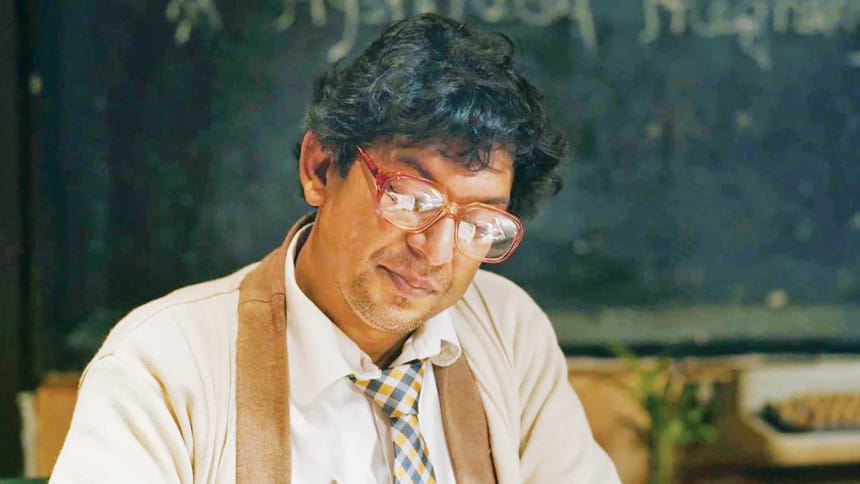Unoloukik and the Use of Silence in Cinema

One of the most gripping scenes in crime genre movies has to be a particular one from Martin Scorsese's The Departed. When Sergeant Sullivan (Matt Damon) calls undercover agent Billy Costigan (Leonardo DiCaprio), through a dead Queenan's phone, none of the characters know who to trust. The plot can deviate either way depending on how they choose to act or more importantly on who talks first.
How does Scorsese use music in this tense moment? He doesn't.
It's absolute silence when the two characters wait for the other one to talk, and eventually, Billy hangs up. However, the original Internal Affairs from which this movie was adapted, felt the necessity to use background score to build tension, almost telling the audience how and when to react. The YouTube channel Every Frame a Painting explains this elegantly in their video "Martin Scorsese - The Art of Silence".
While the greats like Kurosawa, Ozu and Ray had mastered the art of silence, directors like Scorsese, Fincher and Villeneuve are the modern flag bearers. Silence allows the audience to concentrate on the actors' expressions and emotions. Unfortunately, filmmakers these days feel the necessity to keep something playing in the background at all times.
Lazy filmmakers often underestimate the power of music and play it safe. In local movies, the background score is too predictable. Silly music in a humorous scene, high pitched music during sadness or ominous music in a suspenseful one doesn't challenge the audience enough. There's a reason humour in The Office works better than others.
When a scene has absolute silence, you're telling the audience to get closer and concentrate. With proper execution of background score, you have the power to involve the audience in your narrative and control their interest. With silence, timing is really important. Overuse it, and you lose the audience's attention.
And that brings us to the anthology series Unoloukik released on Chorki, which created a well-deserved hype. While all five stories were unique with their approach, "Mrs Prohelika", directed by Robiul Alam Robi and starring Chanchal Chowdhury and Nusrat Imrose Tisha, stood out. Not only because of the two masterful acting performances but also a gripping screenplay and most importantly, its use of silence.
Two characters talking is one of the most difficult things to pull off in cinema. And to approach an entire film based on just two characters conversing was bold of the filmmaker. With maestros like Tisha and Chanchal on screen and a gripping script, toning down the background score and using silence gives the audience a perfect opportunity to concentrate on their genius. Thrill, curiosity, fear -- you don't need music to carry out these emotions if you trust your actors' capabilities.
When Chanchal's character, a psychiatrist, isn't paying heed to Tisha's case and interrupts her frequently, you can perceive subtle annoyance on Tisha's face. Silence allows the audience to notice these small expressions and consequently, entitles them to unfold the story themselves.
The series has excelled in multiple aspects ranging from acting to cinematography, raising the bar to a new height in the process. However, the use of silence, an elusive yet crucial tool of storytelling, is the epitome of master filmmaking that is Unoloukik.
Suggest Ifti nonfiction at [email protected]

 For all latest news, follow The Daily Star's Google News channel.
For all latest news, follow The Daily Star's Google News channel. 



Comments